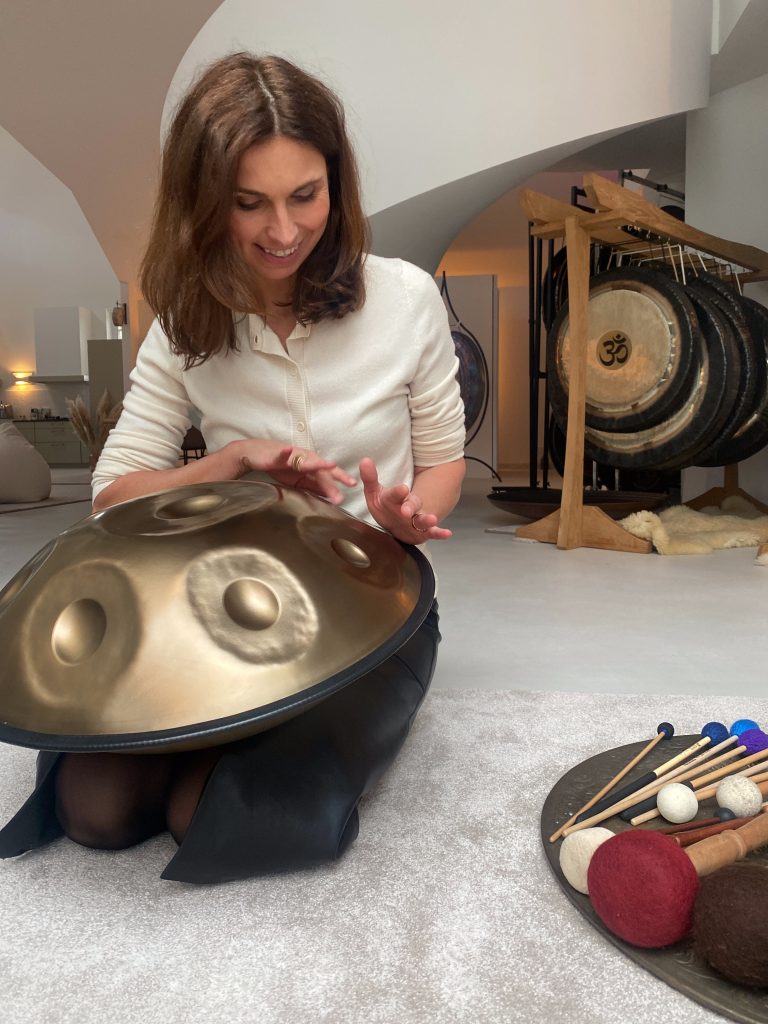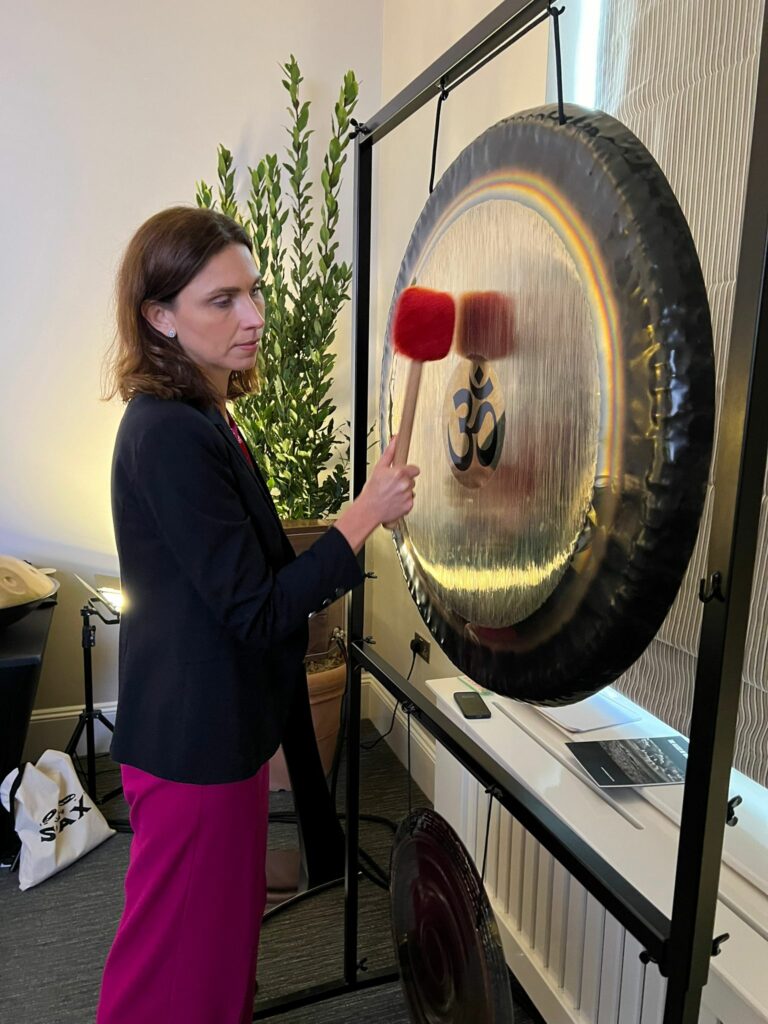 The ancient practice of sound healing has been finding its way into the modern wellness space, signaling a blend of ancestral wisdom with modern therapeutic interventions to enhance wellbeing and emotional health. This article aims to delve deep into the realms of sound healing therapy, exploring its principles, scientific backing, and the myriad ways it can be integrated into our daily lives for improved mental, emotional, and physical health. Let’s embark on a journey to discover how sound can be a powerful ally in our quest for a balanced and serene wellbeing.
The ancient practice of sound healing has been finding its way into the modern wellness space, signaling a blend of ancestral wisdom with modern therapeutic interventions to enhance wellbeing and emotional health. This article aims to delve deep into the realms of sound healing therapy, exploring its principles, scientific backing, and the myriad ways it can be integrated into our daily lives for improved mental, emotional, and physical health. Let’s embark on a journey to discover how sound can be a powerful ally in our quest for a balanced and serene wellbeing.
What is Sound Healing and How Does it Promote Wellbeing?
Understanding the Basics of Sound Healing Therapy
At its essence, sound healing therapy employs the nuanced elements of sound, such as vibration and frequency, to foster an individual’s health and wellness. This therapeutic practice is rooted in the ancient understanding that all matter, including the human body, exists in a state of vibration and resonates at specific frequencies. Sound healing endeavors to synchronize these vibrations, aiming to restore balance and harmony within the body’s energetic fields. This process is believed to facilitate deep states of relaxation, invigorate the body, and rejuvenate the mind, thereby enhancing overall wellbeing.
The Science Behind Vibration and Frequency in Sound Healing
Scientific research on sound healing focuses on the effects of vibration and frequency on the human body. It’s established that sound waves can influence brainwave patterns, leading to changes in psychological states and promoting a meditative state or deep relaxation. Frequencies, especially those in the low theta range, are particularly effective in inducing states of mindfulness and tranquility. This not only aids in relaxation but also enhances the body’s natural healing processes, supporting overall health and wellbeing.
Observational Studies and Evidence of Healing through Sound
Various observational studies and clinical trials have begun to shed light on the effectiveness of sound healing in treating conditions such as anxiety, depression, and stress-related disorders. These studies demonstrate that therapy sessions incorporating sound can significantly lower stress levels, improve sleep quality, and even ameliorate mental health issues over time. The body of evidence, though in its nascent stages, underscores the potential of sound healing as a complementary therapeutic practice for enhancing emotional health.
Discovering the Benefits of Sound Bath Meditation for Stress Relief
What is a Sound Bath and How Can it Improve Your Mental Health?
A sound bath is a guided meditation experience where participants are ‘bathed’ in sound waves produced by instruments like crystal bowls, gongs, and Himalayan singing bowls. This immersive sensory experience is designed to prompt deep relaxation and meditation, guiding the mind away from the daily hustle and leading it into a state of peaceful contemplation. Sound baths have been shown to effectively reduce stress and anxiety, offering a respite for the mind and boosting overall mental health.
Integrating Sound Bath Techniques into Daily Meditation Practice
Incorporating sound bath techniques into your daily meditation practice can significantly enhance its benefits. This could be through attending live sound bath sessions, using recordings of sound baths at home, or learning to play instruments like Tibetan bowls for personal use. The repetitive and soothing nature of these sound vibrations helps center the mind, deepen the meditative state, and foster a sense of emotional stability and clarity.

The Impact of Sound Baths on Brainwave Relaxation and Emotional Release
The immersive experience of a sound bath has a profound impact on the brain’s ability to relax and enter a theta brainwave state, associated with deep meditative and peaceful states. This not only aids in achieving profound relaxation but also facilitates emotional release. Participants often report feeling lighter and more at peace, with a renewed sense of emotional balance. The therapeutic vibrations work to release pent-up emotions and promote mental clarity.
The Role of Healing Frequencies and Instruments in Sound Therapy
Exploring What Sound Frequencies are Most Beneficial for Healing
Sound frequencies play a crucial role in the therapeutic effects of sound healing. Studies suggest that certain frequencies, particularly those within the 432 Hz to 528 Hz range, are believed to be most beneficial for healing. These frequencies are thought to promote inner peace, enhance clarity of mind, and foster the body’s resilience to stress. Sound healers utilize these harmonious frequencies to encourage emotional and physical healing, using a variety of instruments to produce these healing sound waves.
Healing Instruments Used in Sound Therapy: from Tibetan Bowls to Gongs
In the realm of sound therapy, a diverse array of instruments is used to produce healing vibrations. Tibetan singing bowls, made from a blend of metals, produce resonant tones that promote healing and relaxation. Gongs and crystal bowls are also popular for their penetrating sounds and ability to induce trance-like states. These instruments, among others, are central to sound healing practices, each bringing its unique texture and frequency to the therapeutic soundscape.
How Different Sound Frequencies Affect Wellbeing and Health
Different sound frequencies have distinct effects on the body and mind. Lower frequencies are renowned for their calming effects, promoting relaxation and reducing stress. Higher frequencies, on the other hand, can energize and uplift the spirit. Sound therapists skillfully choose frequencies and instruments to match the therapeutic needs of individuals, leveraging the power of sound to tackle specific health concerns, from anxiety and depression to insomnia and beyond.
Incorporating Music Therapy and Sound Healing into Wellness Routines
Understanding the Differences Between Music Therapy and Sound Healing
While both music therapy and sound healing use auditory elements to foster health and wellbeing, they differ in approach and application. Music therapy typically involves engaging with music in an interactive manner, either by creating, singing, moving to, or listening to music, guided by a certified therapist. Sound healing, in contrast, focuses more on the reception of specific vibrations and frequencies to promote healing. Both practices offer unique benefits and can complement one another in a holistic wellness routine.
Building a Personal Sound Healing Routine for Emotional Balance
Creating a personal sound healing routine can be a transformative addition to your wellness regimen. This might involve regular participation in sound bath meditations, daily use of binaural beats for relaxation, or self-guided sessions with tuning forks and singing bowls. Tailoring the practice to your needs allows for a deeply personal journey through sound, fostering emotional balance and contributing to overall health and happiness.
Using Binaural Beats and Tuning Forks for Home-Based Sound Healing
Binaural beats and tuning forks offer accessible ways to experience sound healing at home. Binaural beats involve listening to two slightly different frequencies through headphones, which the brain perceives as a single, calming tone. Tuning forks, when struck and held near the body, deliver precise vibrations that can help align the body’s energy fields. These tools can be easily incorporated into daily routines, providing a simple yet effective method for achieving relaxation and emotional harmony.
Exploring the Connection Between Sound Healing and Lower Blood Pressure
Research Findings on Sound Healing and Its Effect on Blood Pressure
Emerging research indicates sound healing’s potential in supporting cardiovascular health, specifically in lowering blood pressure. Observational studies have noted a decrease in blood pressure levels among participants after sound therapy sessions, attributed to the deep relaxation and stress reduction facilitated by the therapy. This marks a promising step forward in exploring sound healing’s role in managing hypertension and promoting cardiovascular wellbeing.
The Role of Relaxation and Meditation in Managing Hypertension
Relaxation and meditation, key components of sound healing, are instrumental in managing hypertension. The calming effect of sound therapy on the nervous system can help reduce stress, a major contributor to high blood pressure. By incorporating regular sound healing practices into their routines, individuals may find a peaceful and effective avenue for managing blood pressure and enhancing heart health.
Practical Tips for Using Sound Healing to Promote Cardiovascular Health
To leverage sound healing for cardiovascular health, consider integrating practices like listening to calming frequencies, engaging in sound bath meditations, and using instruments like singing bowls at home. Making these practices a part of your daily relaxation routine can help manage stress levels and support healthy blood pressure. Always consult with a healthcare provider when using sound healing as a complementary approach to traditional medical treatments for hypertension.
In conclusion, sound healing offers a unique and powerful pathway to improving wellbeing and emotional health. With its roots in ancient traditions and its wings in contemporary scientific research, this therapeutic modality invites us on a harmonious journey toward healing, balance, and tranquility. Whether it’s through meditation, therapy sessions, or home-based practices, the resonant world of sound healing offers transformative benefits for body and mind, promising a serene and balanced approach to wellness in our modern times.
-
 Happy CEO. Mindset Transformation£2,600.00
Happy CEO. Mindset Transformation£2,600.00 -
Sale Product on sale
 Gong Bath-Private Session
Gong Bath-Private Session£250.00Original price was: £250.00.£180.00Current price is: £180.00. -
 Business Success Accelerator. Lead with charisma and grow your wealth.£250.00
Business Success Accelerator. Lead with charisma and grow your wealth.£250.00 -
 Remove Limiting Beliefs – (3 Individual Sessions)£475.00
Remove Limiting Beliefs – (3 Individual Sessions)£475.00











